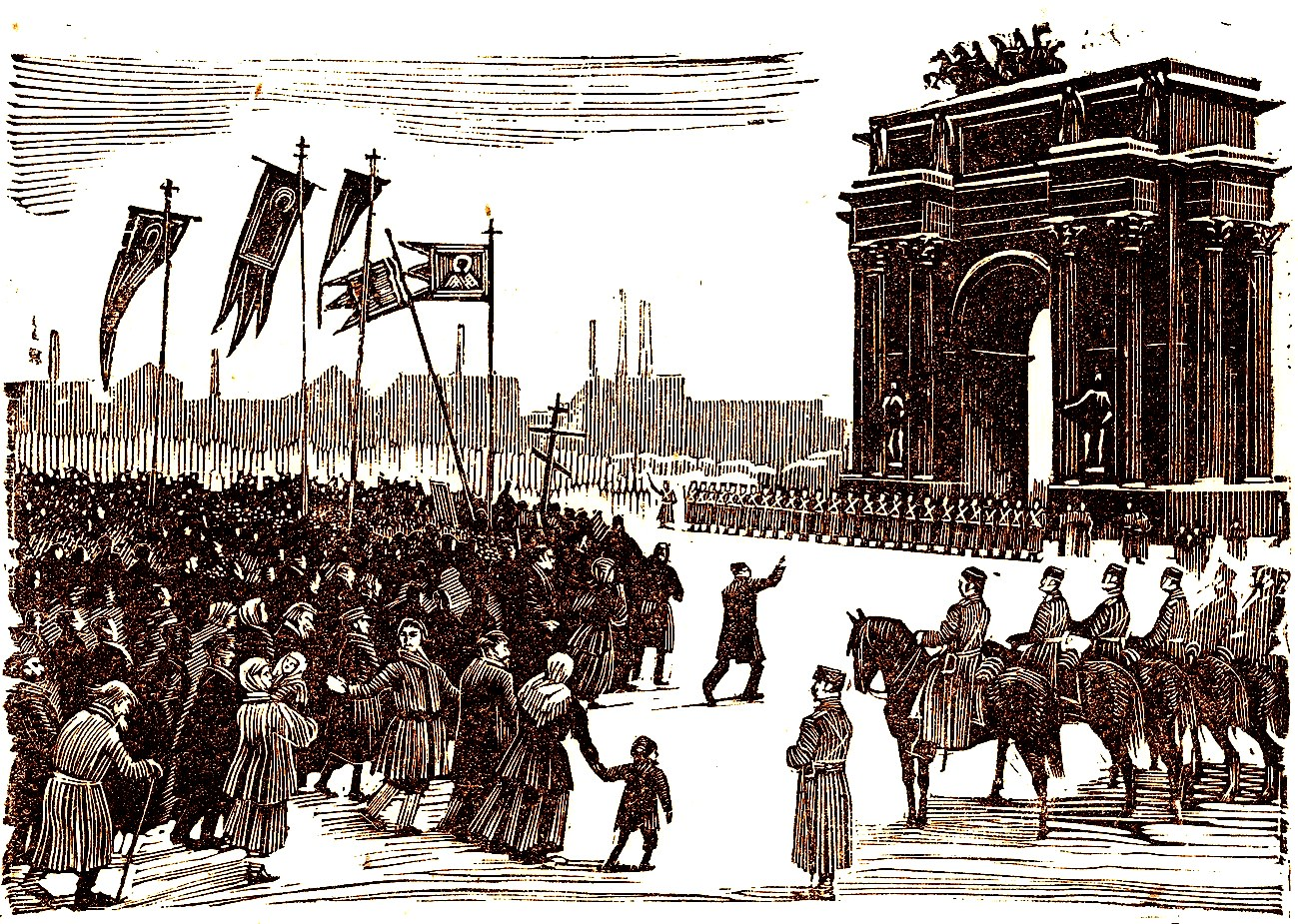The Russian Revolution of 1905, also known as the First Russian Revolution, was a wave of mass political and social unrest that spread through vast areas of the Russian Empire. It included labor strikes, peasant unrest, military mutinies, and the formation of grassroots councils (soviets) of people's power. It is widely felt that the 1905 revolution set the stage for the 1917 Russian Revolutions, and for Bolshevism to emerge as a distinct political movement. Lenin later called it "The Great Dress Rehearsal", without which the "victory of the October Revolution in 1917 would have been impossible".
The 1905 revolution was spurred by the Russian defeat in the Russo-Japanese War, which ended in the same year, but also by the growing realization by a variety of sectors of society of the need for reform in the face of agrarian crisis, economic stagnation, and political repression. However, it is generally felt that the detonator of the insurrection were the events of “Bloody Sunday”, in which a mass demonstration -led by priest and police agent, Georgy Gapon- which had sought to petition the Tsar for relief, was fired upon by the troops, killing hundreds of marchers.
There followed clashes in St. Petersburg, and spreading unrest throughout the rest of the Russian Empire. Strikes spread in three great waves: January, October, and November. In June the crew of the battleship Potemkin famously mutinied against their officers. There were further clashes in St. Petersburg in December.
The rebellion did not overthrow the autocracy, but by late 1905 the Tsar felt obligated by events to agree to constitutional reforms, including the establishment of the State Duma, a multi-party political system, and the Russian Constitution of 1906.
Documents Russian Revolution of 1905
Megathreads and spaces to hang out:
- 📀 Come listen to music and Watch movies with your fellow Hexbears nerd, in Cy.tube
- 💖 Come talk in the New Weekly Queer thread
- 🔥 Read and talk about a current topics in the News Megathread
- 🐱👤 Come talk in the New Weekly PoC thread
reminders:
- 💚 You nerds can join specific comms to see posts about all sorts of topics
- 💙 Hexbear’s algorithm prioritizes comments over upbears
- 💜 Sorting by new you nerd
- 🌈 If you ever want to make your own megathread, you can reserve a spot here nerd
- 🐶 Join the unofficial Hexbear-adjacent Mastodon instance toots.matapacos.dog
Links To Resources (Aid and Theory):
Aid:
Theory:


Cw: language nerd pedantry
spoiler
I find that frustrating bc standarization of spelling and grammar is supposed to aid readability of the text. Like it's the whole reason carolingian miniscule, punctuation, spaces between words, capital letters, it's why it was all invented, so people would have an easier time reading. Way back when the world was new they just wrote everything in one big blob with no spacing or punctuation, sometimes with no vowels, and reading was really really hard. So over the centuries all these things were invented to make it easy for people to read and write. It's a little thing, it's a pedantic nerd pet peeve, but i think it's a little inconsiderate to ask for non-standard stuff in serious non-fiction contexts.IMO having two essentially redundant scripts just so you can emphasize proper nouns is a bigger barrier to reading than not capitalizing some guy's name.